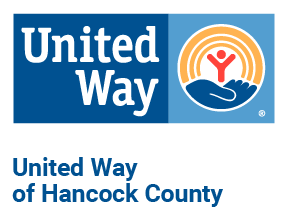Our 2017 fundraising effort has once again broken a record by raising 3.3 million! Thank you to all in Findlay and Hancock County who are so generous in many ways. 2017 also provided our United Way, and our community, with some remarkable instruments to support our desire to make major change happen.
Over the past four years, United Way and community partners have been gathering data and working together to address our community needs through “Collective Impact.” This process is a proven, more effective framework for solving complex social issues. It allows us to get to the root causes of the critical issues in our county. It is a system that requires organizations to reach outside of their comfort zones, trust each other and build a common agenda while sharing data, resources and goals. It also helps us to reduce or eliminate duplication of services.
United Way Worldwide, along with local United Ways, has developed the ALICE report. ALICE is a United Way acronym that stands for Asset Limited, Income Constrained, Employed. ALICE could be your child care worker, your parent on Social Security, the cashier at your supermarket, or a manufacturing associate. ALICE cannot always pay the bills, has little or nothing in savings, and is forced to make tough choices such as deciding between quality childcare or paying the rent. One unexpected car repair or medical bill can push these financially strapped families over the edge.
Through the first nine months of 2017 we worked with the data we gathered over the past several years including our Community Conversations of 2017. We met with our partner agencies to discuss the results and ultimately launched our Financial Stability Initiative in October 2017. The intent is to dedicate some United Way funding to initiatives that will address root causes.
We reached out to partner agencies and other community stakeholders involved in the many facets of financial stability, ranging from workforce development to transportation, housing and early childhood education. Many submitted letters of intent to move this process forward. We found the need to improve the tools needed to achieve our goals. Consequently, we turned down the letters of intent while offering to continue funding those programs impacted through 2018. We are now revisiting the processes for implementation coming up with a better plan while continuing the dialogue so that we create the best system possible.
By using these important data points, and because of our generous community, we can transform our community. We are truly on the path to becoming proactive instead of reactive. It takes a combination of these efforts to affect change. We realize that change is challenging and we are doing our best to be flexible, informed and systematic about the change we need to see.
John Urbanski
President & CEO
United Way of Hancock County
